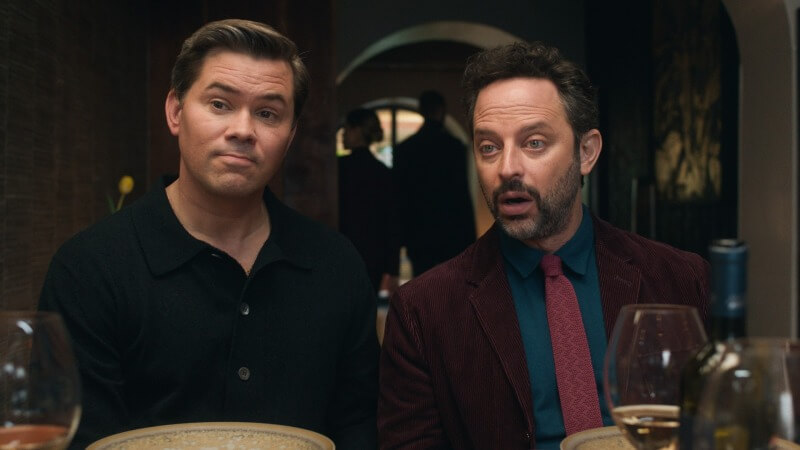
When Nick Kroll appears in the comedy horror flick, “I Don’t Understand You”—playing Dom, a neurotic, magnetic gay man navigating a disastrous Italian anniversary trip with his husband Cole (Andrew Rannells)—I did what many viewers might do: I Googled him. Is Nick Kroll queer?
From what I can tell, he isn’t. And that fact alone doesn’t make the performance any less compelling—Kroll is excellent in the role. It’s an off type performance for Kroll who is best known for his work in series such as “Big Mouth” and “The League”. But it does raise the same, lingering question that resurfaces with every gay film: Why is it still so rare for an openly gay actor to play the lead?
This film released by Vertical Entertainment, is co-written and directed by two married gay men, David Joseph Craig and Brian Crano. Andrew Rannells, who plays Cole, is openly gay. This is not a film made without queer voices—on the contrary, it’s deeply and lovingly queer. Which makes Kroll’s casting as the lead all the more complicated. Not wrong. But worth interrogating.
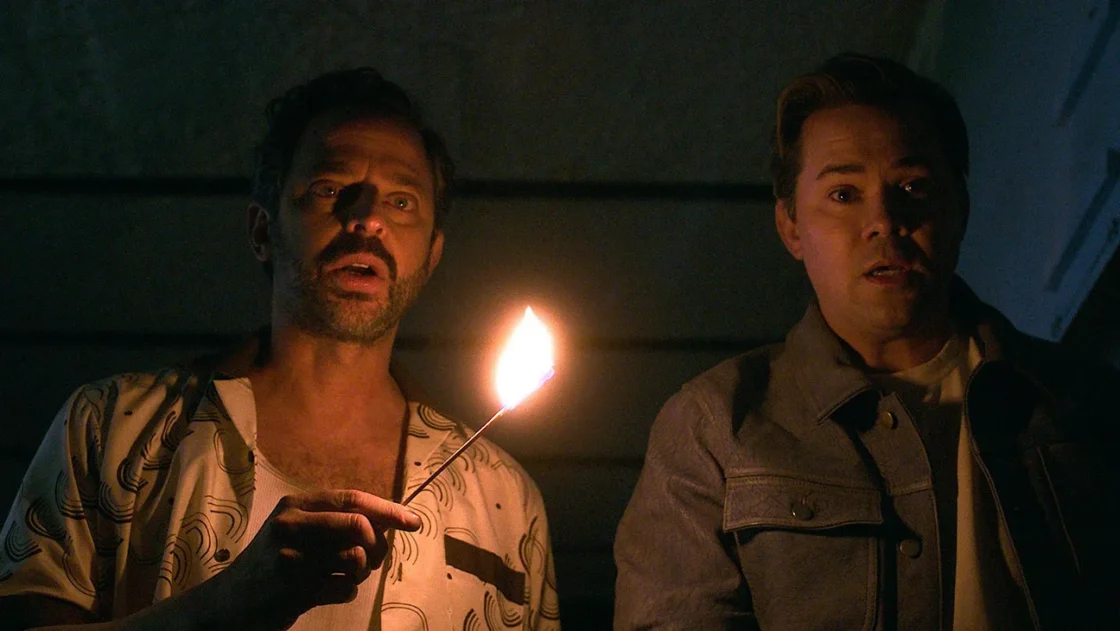
Would this film have been greenlit if Colman Domingo, Andrew Scott, or Matt Bomer were in the lead instead alongside Rannells? All openly gay actors. All talented. All arguably more “expected” choices for this kind of role. But here’s the harder question: would studios have trusted the film’s commercial viability without someone like Nick Kroll—a known, bankable, heterosexual star—to anchor it?
It’s hard not to think of “Bros” (2022), the first major studio gay rom-com, which had a historic amount of marketing support from Universal—and still opened under $5 million. The film, written by and starring Billy Eichner, was unapologetically queer, loud, and proud. Its underperformance was instantly dissected as either proof that “America isn’t ready” or that niche doesn’t sell. But what if we’re asking the wrong question?
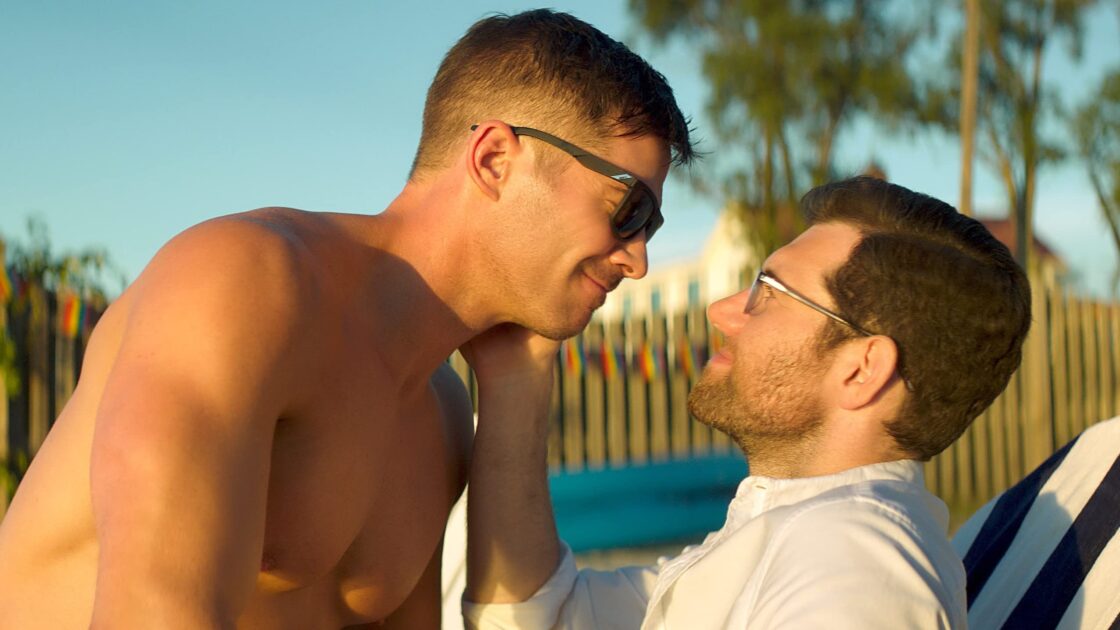
What if studios aren’t ready to bet on queerness unless it’s buffered—by straight actors, by softened scripts, by “relatable” packaging? What if this isn’t about audiences at all, but about who gets to be seen as commercially safe?
Historically, this is nothing new. Straight and cisgender actors have long been lauded for playing LGBTQ+ roles. Hilary Swank won for “Boys Don’t Cry”. Sean Penn won for “Milk”. Jared Leto won for “Dallas Buyers Club”. Eddie Redmayne was nominated for “The Danish Girl”. Rami Malek won for “Bohemian Rhapsody”. Timothée Chalamet was nominated for “Call Me By Your Name”. Cate Blanchett was nominated for “TÁR”. Sterling K. Brown was nominated for “American Fiction”. The list goes on.
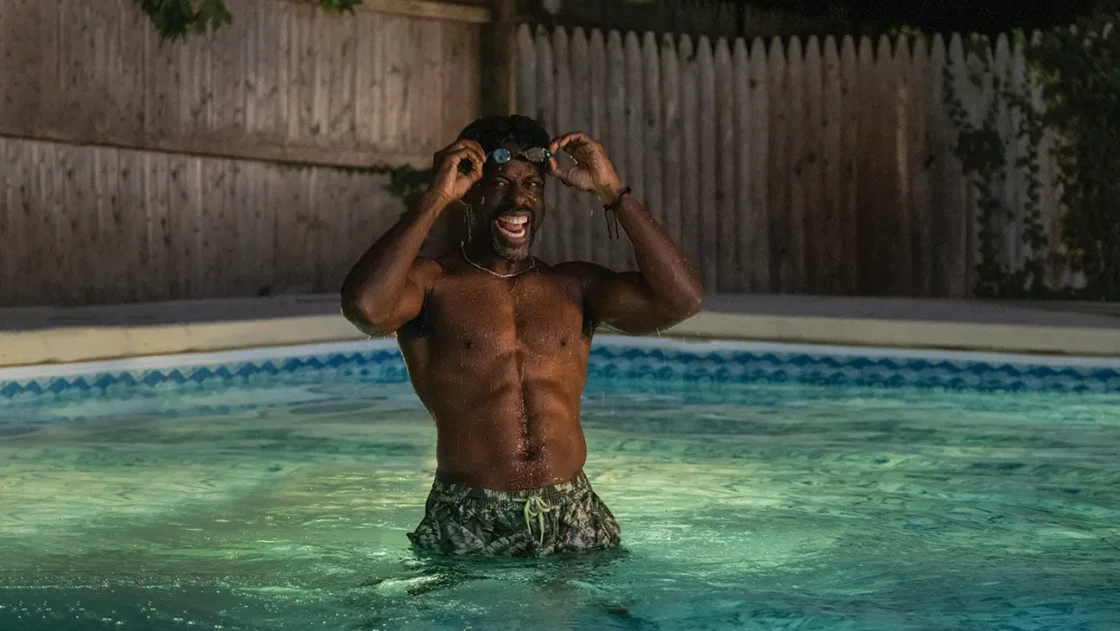
The pattern is clear: straight actors portraying queer roles are often rewarded with praise and accolades, while queer actors still struggle to secure leading roles. While it’s not always about awards, they remain a useful barometer for how Hollywood validates certain stories and performances. Colman Domingo was only the second openly gay man ever nominated for Best Actor at the Oscars—for “Rustin” in 2024—following Ian McKellen’s nomination in 1999 for “Gods and Monsters”. Jodie Foster, also openly queer, was nominated that same year for her supporting role in “Nyad”. These milestones are welcome—but long overdue.
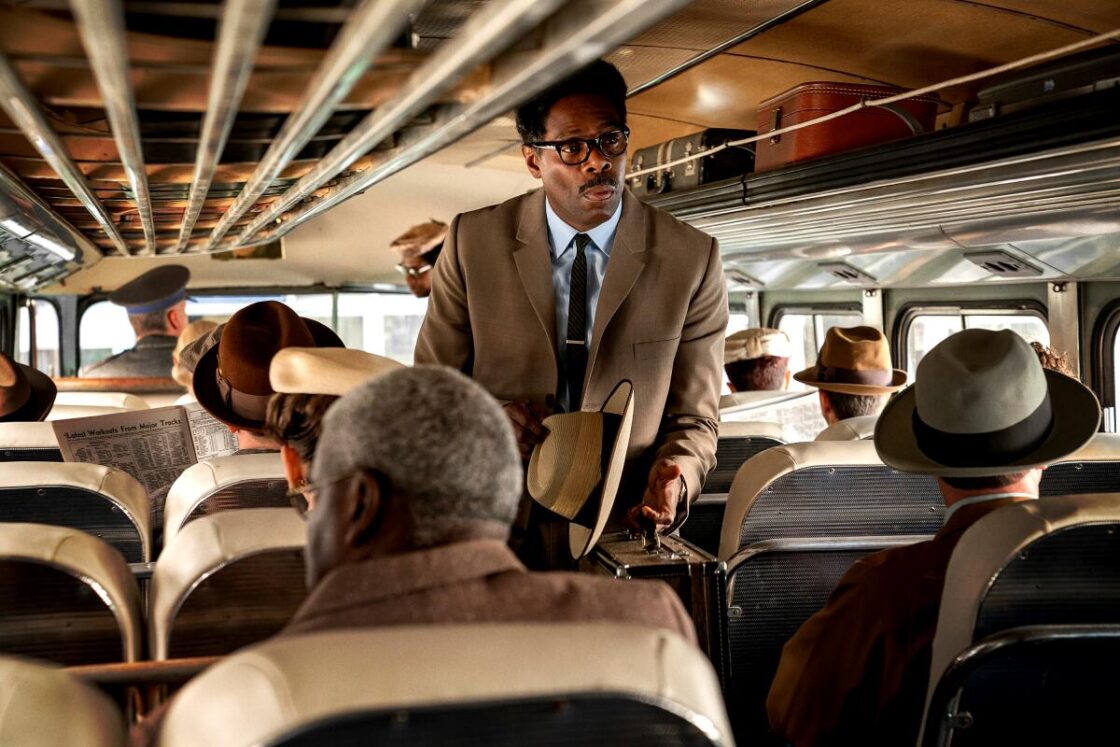
If acting is about transformation, then fairness is about opportunity. And opportunity is still not equitably distributed. Until queer actors are given the same chance to lead, to fail, to shine, and to grow, we can’t pretend the playing field is level—no matter how compelling the performance may be. The issue isn’t that straight actors are incapable of portraying queer characters with empathy and depth. It’s that queer actors are so rarely given the same creative license and support to tell their own stories, or anyone else’s. While straight performers are celebrated for taking a “risk” by stepping into queer roles, queer performers are still often considered too risky to lead at all.
This isn’t simply about identity politics—it’s about who gets to shape culture. When queer people are kept at the margins of their own narratives, we’re left with stories that often reflect queerness through a heteronormative gaze. Authentic casting doesn’t just bring lived experience to the screen; it changes what kinds of stories get told, and how deeply they resonate. Real representation isn’t just about who’s visible—it’s about who’s trusted. Until studios believe in queer actors the same way they believe in straight ones playing queer, we will continue to see our own reflections filtered through someone else’s idea of what our lives should look like. And that’s not representation. That’s erasure, dressed in empathy.
